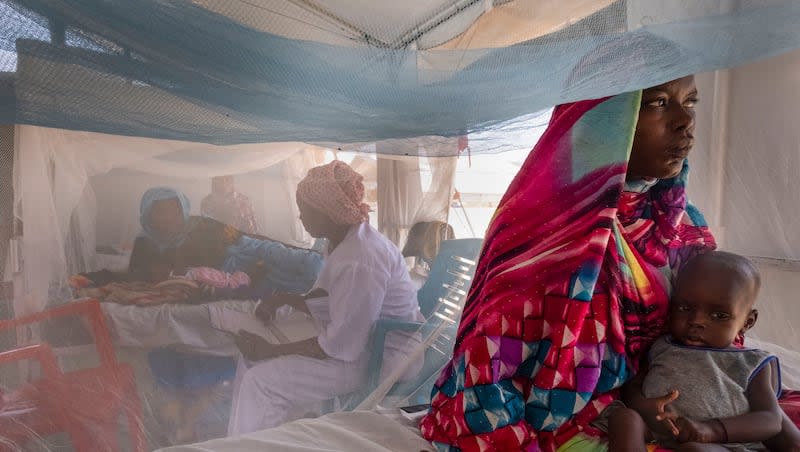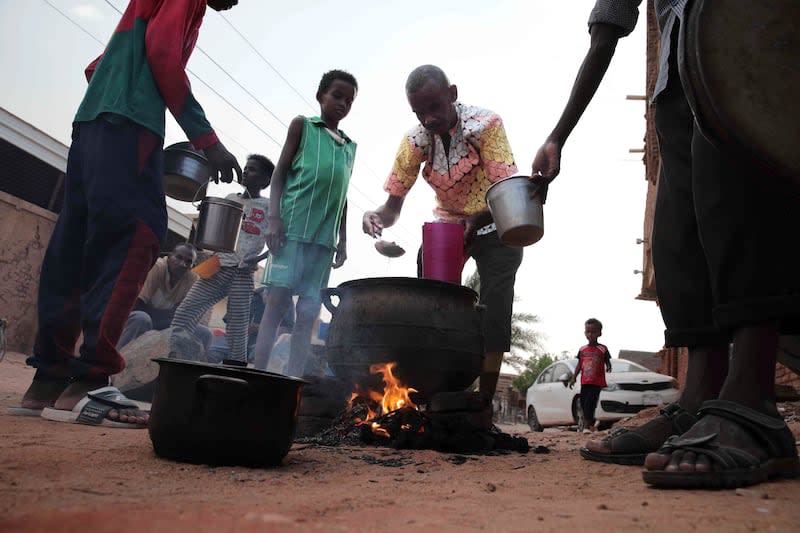Grim anniversary in Sudan

April 15 marks a grim milestone — and I don’t mean Tax Day. It marks the day that one year ago, two power-hungry Sudanese generals took their factions to war.
The two sides, who previously worked together to unseat longtime Sudanese dictator Omar al-Bashir, could not come to an agreement on who should be in power. The Sudanese Armed Forces, or SAF, led by Gen. Abdel Fattah al-Burhan, and the rebel paramilitary Rapid Support Forces, or RSF, led by Gen. Mohamed Hamdan Dagalo, are responsible for tens of thousands of deaths, and of displacing 8.5 million Sudanese, including 2 million children under age 5.
Twenty-five million people are in need of humanitarian aid and nearly 18 million are facing acute levels of hunger, with 5 million on the brink of famine. United Nations agencies warn that in the coming weeks and months, more than 220,000 Sudanese children could die of starvation. By the end of the year, that number could rise to 700,000, a toll that could rival that of the Ethiopian famine of the 1980s, reports The Wall Street Journal.
The country is on the verge of total collapse. Hospitals and health services barely function, if they exist at all. Banks struggle to access their servers at the central bank, making it difficult for many citizens and businesses to draw from savings or obtain cash. Over the past two months, much of the country has been in a near-total telecommunications blackout that has paralyzed money-transfer apps. The capital city is rubble, irrigation canals and agricultural fields have been destroyed, humanitarian food aid is being hijacked by rival forces and prices of staples like wheat and corn have tripled in the last year. Sexual violence is rampant.
Dr. Christos Christou, international president of Doctors Without Borders/Médecins Sans Frontières (MSF), said last week that Sudan is one of the worst crises the world has seen in decades. The international aid community is notably absent, Christou said, adding that often, MSF is the only aid organization working in an area. Further, he said that “this level of international neglect is shocking.” He called on UN member states to use their influence and initiate a rapid scale-up of the humanitarian response to the crisis in Sudan and to increase funding.
As the world’s attention focuses on crises in Ukraine and Israel, Sudan has largely been overlooked. U.S. Ambassador to the United Nations Linda Thomas-Greenfield said in an interview with NPR that “as communities barrel toward famine, as cholera and measles spread, as violence continues to claim countless lives, the world has largely remained silent.”

Last month, Ambassador Thomas-Greenfield penned an op-ed for The New York Times on “The Unforgivable Silence on Sudan.” She wrote that “civil war has once again turned Sudan into a living hell. But even after aid groups designated the country’s humanitarian crisis to be among the world’s worst, little attention or help has gone to the Sudanese people.” She concluded her piece with this: “Through the sounds of gunfire and shelling, the people of Sudan have heard our silence. They ask why they have been forsaken; why they have been forgotten.”
“For one year, the people of Sudan have been neglected and ignored as they bore the brunt of violent clashes” between the warring parties, said Tigere Chagutah, Amnesty International’s regional director for East and Southern Africa, in a statement. “Diplomatic efforts have so far failed to end violations, protect civilians, provide sufficient humanitarian aid, or hold the perpetrators of war crimes to account.”
At a conference in Paris on Monday, donors from around the world pledged more than $2.13 billion in aid for Sudan and neighboring countries, about half of what humanitarian agencies said they needed this year. In Paris, the EU pledged 350 million euros, while France and Germany, the co-sponsors, committed 110 million euros and 244 million euros respectively, reports Reuters. The United States pledged $147 million and Britain $110 million. The gathering, co-hosted by the governments of France, Germany and the European Union, also called for an end to the fighting.
However, there is currently no end in sight.

